 Headline News
Headline News
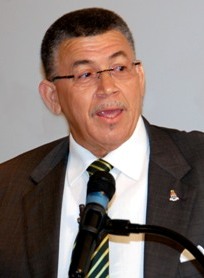
Mac says people must give something to get something
 (CNS): The country’s premier has said that people need to make sacrifices in order for the country to improve its economic fortunes. Speaking to tourism stakeholders last week at an industry lunch, McKeeva Bush berated the community when he said everybody wanted something but no one was prepared to give anything. He said some people didn’t recognise the importance of the cruise industry but it was very important and government was focusing on the need to turn cruise visitors into overnight guests. He said the cruise project was essential and if “we are going to have to lift some piece of coral out of the way” then that’s what would happen. “To get something we have to give something,” Bush said.
(CNS): The country’s premier has said that people need to make sacrifices in order for the country to improve its economic fortunes. Speaking to tourism stakeholders last week at an industry lunch, McKeeva Bush berated the community when he said everybody wanted something but no one was prepared to give anything. He said some people didn’t recognise the importance of the cruise industry but it was very important and government was focusing on the need to turn cruise visitors into overnight guests. He said the cruise project was essential and if “we are going to have to lift some piece of coral out of the way” then that’s what would happen. “To get something we have to give something,” Bush said.
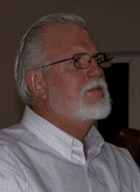
Law aims to protect kids
 (CNS): Although the new Domestic Violence bill, which has gained support from both government and opposition, was driven by the issue of gender violence in the country, the minister responsible said it would also protect the islands’ children. Presenting the new law to his legislative colleagues last week, Mike Adam said many of society’s current problems were down to children growing up witnessing or experiencing violence and abuse in the home. He said these kids learned no other way of dealing with conflict but through violence and the goal of the legislation was to eradicate abuse from the domestic setting and protect the children as well as other family members from it. (Photo Dennie Warren Jr)
(CNS): Although the new Domestic Violence bill, which has gained support from both government and opposition, was driven by the issue of gender violence in the country, the minister responsible said it would also protect the islands’ children. Presenting the new law to his legislative colleagues last week, Mike Adam said many of society’s current problems were down to children growing up witnessing or experiencing violence and abuse in the home. He said these kids learned no other way of dealing with conflict but through violence and the goal of the legislation was to eradicate abuse from the domestic setting and protect the children as well as other family members from it. (Photo Dennie Warren Jr)
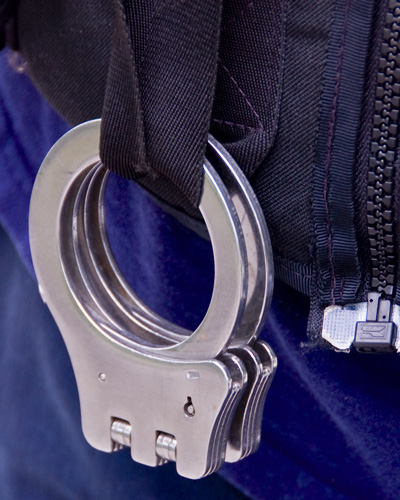
Right to silence lost
 (CNS): The long held right for someone who is arrested to remain silent without incriminating themselves has been lost. Although serious concerns have been raised in the community, the controversial Police Bill, which includes the change, is shortly to become law. In future, remaining silent or speaking can all be used against an individual who falls foul of law enforcement and is arrested .The attorney general defended the clause which will enable prosecutors to point a jury (at trial) towards an adverse inference or a negative reason for a person’s silence at arrest, saying it was not new and had been in place in the UK since 1994. (Photo Dennie Warren Jr)
(CNS): The long held right for someone who is arrested to remain silent without incriminating themselves has been lost. Although serious concerns have been raised in the community, the controversial Police Bill, which includes the change, is shortly to become law. In future, remaining silent or speaking can all be used against an individual who falls foul of law enforcement and is arrested .The attorney general defended the clause which will enable prosecutors to point a jury (at trial) towards an adverse inference or a negative reason for a person’s silence at arrest, saying it was not new and had been in place in the UK since 1994. (Photo Dennie Warren Jr)
He said that not only had his views not changed but, given the attitude of the current government to legal aid, his concerns are greater now than were 9 years ago.
He said the change in the law would lead to serious consequences, which havebeen highlighted by a number of legal experts. The former cabinet minister also pointed out that, while the UK has had similar provisions operating for the past decade and a half, there are significant practical obstacles to introducing the adverse inferences provisions to Cayman law.
“Firstly, legal aid is not available to suspects until they are charged and taken to court. Therefore persons arrested, detained or interviewed at the police station may have adverse inferences drawn from their failure to answer questions without having had the benefit of independent legal advice as to the consequences of remaining silent,” he said, agreeing with the criminal defence bar but going further when he pointed out the attitude of the current government to legal aid.
Witnesses truthful, says SG
(CNS): The solicitor general described the evidence of the crown’s two teenage eye witnesses as “remarkably similar” as she made her closing statement in the Grand Court on Monday. Summing up the prosecution’s case against Brandon Leslie-Ebanks, Patrick McField and Osborne Douglas for the murder of Omar Samuels, Cheryl Richards QC said the differences related to an independence of recollection rather than because they were unreliable or untruthful. She said witnesses can only say what they remember. Richards said the suggestion they were lying was implausible and did not bear scrutiny.
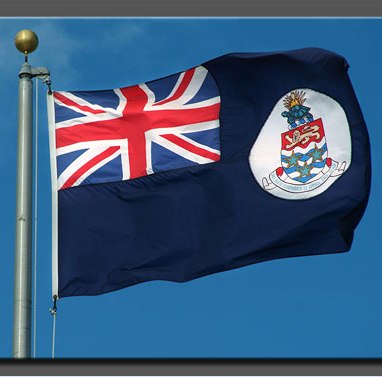
Jobs to be saved for locals
 (CNS): The labour minster said government is backing a private member’s motion to look at making some jobs the preserve of Caymanians only. The day after the premier had publicly berated protectionist attitudes in the country that were driving people and businesses away, his Cabinet colleague stated in the Legislative Assembly last week that government was setting up a committee that would look at which types of professions and specific jobs could be reserved for Caymanians only. Rolston Anglin acknowledged that there would be detractors but, he said, given the levels of Caymanian unemployment and the changing economic fortunes, it was time to look at the issue.
(CNS): The labour minster said government is backing a private member’s motion to look at making some jobs the preserve of Caymanians only. The day after the premier had publicly berated protectionist attitudes in the country that were driving people and businesses away, his Cabinet colleague stated in the Legislative Assembly last week that government was setting up a committee that would look at which types of professions and specific jobs could be reserved for Caymanians only. Rolston Anglin acknowledged that there would be detractors but, he said, given the levels of Caymanian unemployment and the changing economic fortunes, it was time to look at the issue.

OCC: NPO has failed public
 (CNS): The Complaints Commissioner submitted her first own motion report to the Legislative Assembly on Friday highlighting the systematic failure of the National Pensions Office (NPO) to enforce the pensions law and bring justice to hundreds of people whose employers have literally stolen their contributions. Nicola Williams found that the NPO had failed to use its powers under the law effectively, as well as a lack of political will to address the problem, a break down of inter-agency communication and a host of other problems that has led to a complete loss of trust by the public in the NPO. Despite the worrying findings in the report presented to members by MLA Cline Glidden, he made no comment about them and there was no debate in the House.
(CNS): The Complaints Commissioner submitted her first own motion report to the Legislative Assembly on Friday highlighting the systematic failure of the National Pensions Office (NPO) to enforce the pensions law and bring justice to hundreds of people whose employers have literally stolen their contributions. Nicola Williams found that the NPO had failed to use its powers under the law effectively, as well as a lack of political will to address the problem, a break down of inter-agency communication and a host of other problems that has led to a complete loss of trust by the public in the NPO. Despite the worrying findings in the report presented to members by MLA Cline Glidden, he made no comment about them and there was no debate in the House.

Robbers strike at local store
 (CNS): The manager of a small grocery store in George Town was knocked out by a gunman during an armed robbery late Saturday night (11 September), police said on Sunday morning. George Town detectives are now appealing for witnesses to the incident, which occurred at 22:15 outside the convenience store in the vicinity of Money Gram on Shedden Road. Two men, one armed with a gun, held up the operator of the store as he was leaving. They ordered him to hand over the money and he gave them the bag he was carrying, which contained an undisclosed sum of money, a Blackberry phone and keys. He was then struck on the head by the man with the gun and was unconscious for a short while.
(CNS): The manager of a small grocery store in George Town was knocked out by a gunman during an armed robbery late Saturday night (11 September), police said on Sunday morning. George Town detectives are now appealing for witnesses to the incident, which occurred at 22:15 outside the convenience store in the vicinity of Money Gram on Shedden Road. Two men, one armed with a gun, held up the operator of the store as he was leaving. They ordered him to hand over the money and he gave them the bag he was carrying, which contained an undisclosed sum of money, a Blackberry phone and keys. He was then struck on the head by the man with the gun and was unconscious for a short while.

Turtle farm goes back to roots
 (CNS): The management team at the Turtle Farm says it is dropping the name Boatswain’s Beach and returning to the original name of The Cayman Turtle Farm. Announcing a rebranding of the facility this morning, Managing Director Tim Adam said it was about returning to a simpler more relevant title for both locals and overseas visitors. He added that the rebrand was the start of the next phase of the facility’s development. With the cost cutting exercise over, the farm crew was focusing on attracting more visitors. Adam, who has been in post since January this year and already has a reputation for tackling the difficult issues, spearheaded the move for a return to the original name, which is likely to receive popular support. (Photo Dennie WarrenJr)
(CNS): The management team at the Turtle Farm says it is dropping the name Boatswain’s Beach and returning to the original name of The Cayman Turtle Farm. Announcing a rebranding of the facility this morning, Managing Director Tim Adam said it was about returning to a simpler more relevant title for both locals and overseas visitors. He added that the rebrand was the start of the next phase of the facility’s development. With the cost cutting exercise over, the farm crew was focusing on attracting more visitors. Adam, who has been in post since January this year and already has a reputation for tackling the difficult issues, spearheaded the move for a return to the original name, which is likely to receive popular support. (Photo Dennie WarrenJr)
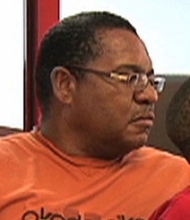
Police call off search for missing prison chef
 (CNS): The RCIPS said this evening that it has called off the search for Brian Ricardo Rattray, who was reported missing yesterday. The man who was a victim of arson recently and a chef at Northward Prison, was last seen by his wife yesterday at around 9am. Police launched a search operation but now say enquiries have concluded that Rattray "is safe and well" and no longer considered to be a missing person. No other details were offered by the police but his family is now aware of his whereabouts. Rattray and his family lost everything when their home was completely destroyed by a fire that is under investigation and believed to have been set deliberately. (Photos courtesy of News27).
(CNS): The RCIPS said this evening that it has called off the search for Brian Ricardo Rattray, who was reported missing yesterday. The man who was a victim of arson recently and a chef at Northward Prison, was last seen by his wife yesterday at around 9am. Police launched a search operation but now say enquiries have concluded that Rattray "is safe and well" and no longer considered to be a missing person. No other details were offered by the police but his family is now aware of his whereabouts. Rattray and his family lost everything when their home was completely destroyed by a fire that is under investigation and believed to have been set deliberately. (Photos courtesy of News27).
Police have not yet confirmed the suspicions but CNS understands that the investigation into the fire may be connected to Rattray’s work at the prison.
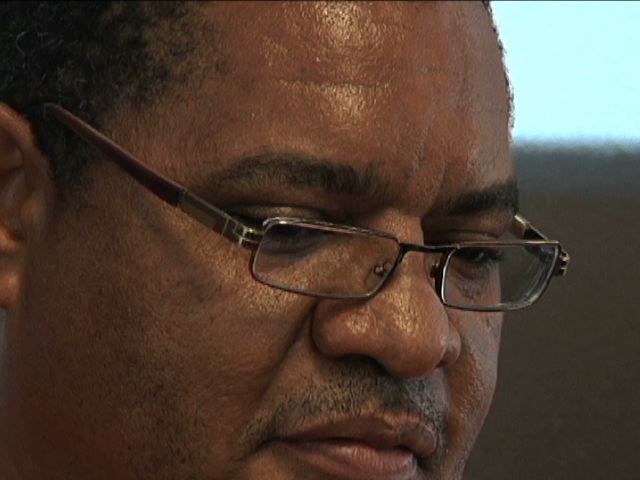 The blaze which destroyed the home in Midland Acres, Bodden Town, was set on Monday 30 August while the family was visiting a friend’s house. The 911 emergency centre received the call at around 9pm and dispatched fire and police officers from Bodden Town to the address at 95 Periwinkle Drive. Arriving at the scene, fire officers said the one bedroom concrete structure was engulfed in flames.
The blaze which destroyed the home in Midland Acres, Bodden Town, was set on Monday 30 August while the family was visiting a friend’s house. The 911 emergency centre received the call at around 9pm and dispatched fire and police officers from Bodden Town to the address at 95 Periwinkle Drive. Arriving at the scene, fire officers said the one bedroom concrete structure was engulfed in flames.

Ritz owes $6m to public purse
 (CNS): The developer of the Ritz Carlton has defaulted on his outstanding customs payments due to the Cayman Islands government, it was revealed in the Legislative Assembly on Thursday morning. Answering a question from the opposition about government’s collection of various deferred payments on customs duties re agreements made between property developers and the government, the premier admitted the payments had not been made by Stingray and Condo Co. McKeeva Bush said that as a result of the difficult economic circumstances the developer, who owesover $6million to government, had asked for the payment plan to be extended and had not made any payments since March last year.
(CNS): The developer of the Ritz Carlton has defaulted on his outstanding customs payments due to the Cayman Islands government, it was revealed in the Legislative Assembly on Thursday morning. Answering a question from the opposition about government’s collection of various deferred payments on customs duties re agreements made between property developers and the government, the premier admitted the payments had not been made by Stingray and Condo Co. McKeeva Bush said that as a result of the difficult economic circumstances the developer, who owesover $6million to government, had asked for the payment plan to be extended and had not made any payments since March last year.
“With the exception of one entity the government is collecting all deferred payments and customs duties as they become payable in accordance with the specific terms of agreement,” Bush said in response to the question asked by the George Town member, Alden McLaughlin. “The entity that has temporarily suspended payments on its agreement is required to make quarterly payments of $347,818. To date the total amount repaid by the entity is $3,825,996.”
The premier said however that more than $6milllion remained outstanding.